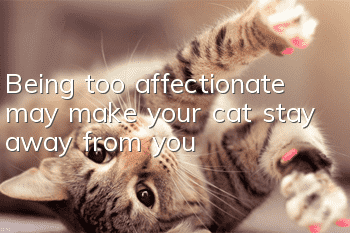B vitamins and cat health? Can it promote growth and development?

Lack of B vitamins can cause diseases in cats. For example, cats often develop oral diseases. Lack of vitamin B can aggravate the degree of oral diseases. B vitamins are also a huge vitamin family, including a variety of trace elements, each with different functions.
Thiamine (vitamin B1) is closely related to the metabolism of sugars and lipids in animals, and catalyzes the activities of dehydrogenase and transketolase. The activities of these enzymes are closely related to the nervous system and immune system of animals. Closely related, animal skin diseases are likely to be related to insufficient supply of thiamine.
Riboflavin (vitamin B2) is the precursor of riboflavin 5'-phosphate (FMN) and flavin adenine dinucleotide (FAD), both of which are coenzymes of many enzymes in organism metabolism. Participate in hundreds of biological reactions. It is also a necessary substance for protein, sugar, and fatty acid metabolism and energy utilization and composition. It can promote growth and development and protect the health of eyes and skin.
Vitamin B6 is a group of nitrogen-containing compounds, mainly pyridoxine, pyridoxal, pyridoxamine, etc. It participates in more than 100 enzyme reactions and is related to the hormone regulation level, immune level, and neuromodulation ability of the animal body. .
Niacin is the collective name for niacin and derivatives with nicotinamide biological activity. It is an essential component of the coenzymes NAD and NADP. It is related to the regulatory functions of blood sugar and blood lipids. It can resist stress, cold, infection, prevent the toxicity of certain antibiotics, and eliminate postoperative abdominal distension.
Vitamin B12 is the collective name for various cobalt amides that are active in the animal body. It can fight against fatty liver, promote the storage of vitamin A in the liver, promote cell development and maturity and body metabolism, treat anemia, and is also related to the development of the nervous system of animals.
When B vitamins are lacking, adjust the diet composition and provide feed rich in B vitamins; supplementing with synthetic B vitamin preparations is also one of the solutions. In fact, beneficial intestinal bacteria can produce a variety of B vitamins during the growth and reproduction process, and these B vitamins are healthy and safe. However, some intestinal diseases and the use of most antibiotics can cause intestinal flora imbalance, so Timely replenishment of beneficial intestinal bacteria is also one of the ways to prevent B vitamin deficiency. It is also reported that the bioavailability of synthetic or manufactured vitamins is much lower than that of natural vitamins. Therefore, the health effects of vitamins produced by intestinal beneficial bacteria cannot be replaced by other methods in the long term.
Symptoms of B vitamin deficiency:
Vitamin B2 (riboflavin) deficiency, sick cats show ulcerative stomatitis, conjunctivitis and "pellagra"; pantothenic acid (vitamin B2) deficiency, sick cats show growth retardation or stagnation , fatty liver, and gastrointestinal disorders including ulcers; niacin (vitamin B) deficiency, sick cats show oral inflammation accompanied by ulcers, and sticky, blood-filled saliva.Fluid drips from the mouth and exhales a foul smell; pyridoxine (vitamin B6) deficiency, the sick cat shows weight loss, anemia, and may also cause urinary tract stones; folic acid (vitamin B1) deficiency, the sick cat Manifested as anemia or leukopenia.
- Can pet cats drink soy milk?
- Keeping a tailless cat is animal cruelty!
- Causes and symptoms of depression in cats
- How much does a Carteret cat cost and is it easy to keep? The difference between a Carteret cat and a British Shorthair cat
- Methods and precautions for bathing civet cats
- How to perform sterilization surgery on Ragdoll cats?
- Several ways to easily remove hairballs for cats. Beware of hairball disease!
- How to raise a Bombay cat? Bombay cat feeding guide
- How to deal with your cat's shortness of breath?
- What are the signs that a kitten is in heat?



